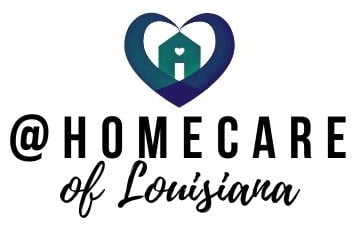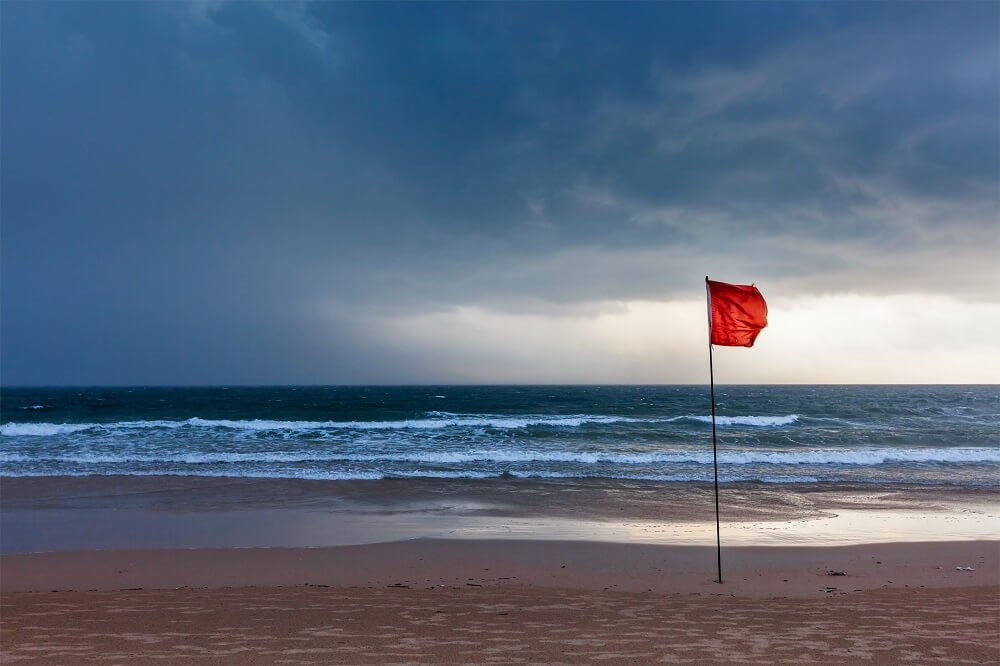Well, it’s about that time, folks! The relentless heat has lingered around long enough that the Gulf Coast water temperatures are now between a bathtub and a hot tub, creating a breeding pool for hurricanes. Like a lion stalking its prey, the local meteorologists are just waiting to pounce on the next system to develop. Only time will tell if another Ida, Katrina, Betsy, or Andrew will actually form during this upcoming Atlantic hurricane season. Still, in the interim, it is essential to properly prepare your senior loved one for what could potentially be heading their way in case of a tropical depression.
As with anything else, if we fail to prepare, we can prepare to fail. Hurricane season is no different. A well-devised plan of action and an adequately prepared emergency kit can give your loved one and you the peace of mind needed to approach a threatening storm successfully. Whether you live in Baton Rouge, New Orleans, Lafayette, or another coastal Louisiana city, below is a list of things you can do to prepare for a potential hurricane.
Creating an Emergency Kit
Having all your necessary items together in one location is essential for hurricane preparedness. Doing this before a storm hits the gulf coast allows you to collect your essentials with a clear mind and well-stocked grocery shelves. Once an impending storm threatens the area, everyone is sent into a tailspin, and the shelves are wiped clean. Below is a list of items you should include in your emergency kit.
- Flashlight – Have it ready to go during a power outage. Keep a supply of spare batteries to replenish as needed.
- Food and water – Stock up on nonperishable food options and water to last you for at least three days. Canned meats, nut butter, canned fruits and vegetables, snack crackers, canned soups, jerky, and protein bars are just a few of the recommended items to keep on hand.
- Can opener – This is an often overlooked item that comes in handy. Without it, many of your nonperishable food items can not be utilized.
- Paper goods – Stock enough paper plates, bowls, napkins, and cups to serve your meals.
- Medical Documents – In the event of long-term power outages, critical medical documents may be unable to be accessed. Keep a copy of your vital information and your physicians’ names and phone numbers to reference if needed. Additionally, it’s helpful to keep a list of your medications and dosing information. Finally, note any medical equipment, manufacturer, and serial numbers for easy reference.
- Other vital documents – Aside from your medical information, keep a copy of your driver’s license, social security card, birth and marriage certificates, and your will. All paper documents should be kept in a waterproof bag within your emergency kit.
- Medications – Have a two-week supply of your medications on hand. Refill prescriptions as needed before a storm.
- Radio – A battery-powered radio will help you to stay informed before, during, and after a hurricane. As mentioned earlier, be sure to have extra batteries on hand.
Emergency Plan and Management
Preparing an emergency kit is only half the preparation; now, it’s time to make an emergency plan. Much like preparing your kit, you should discuss your plans before a storm hits the Gulf of Mexico. Again, this allows you to think clearly and calmly so that your plan is well thought out. Have your elderly loved one involved in the emergency plan, if possible.
Begin by selecting a point person who will be the point of contact before, during, and after the storm. This individual, whether a neighbor, family member, caregiver, close friend, or other chosen person, will be responsible for checking in on the senior and assisting them in executing the plan. Be sure to post this person’s name and contact information in a prominent location where it can be easily accessed. If your elderly loved one needs memory care or 24-hour care, you may help from a home care agency.
The contact person and any other care team members will help their loved ones stay informed of any new developments that may surface. Assisting the senior in understanding the storm’s severity, evacuation or shelter plans, and local government recommendations is critical to the planning process.
Finally, set guidelines to determine when it’s best to stay and shelter in place or when to pack up and evacuate. If your loved one lives in a senior living facility, discuss emergency plans specifically for a storm; plan accordingly. If you leave, bring all necessary documents, medications, medical equipment, supplies kit, clothing, etc. Additionally, plan your evacuation route to reduce or eliminate potential mishaps. If traveling is not feasible, look into local shelters, hurricane centers, or other local resources that can meet their medical needs.
Having well-established plans and procedures will help reduce stress, anxiety, and last-minute decisions during a crisis. Take the time to prepare for hurricane season before it’s too late properly.
Conclusion
We hope this article provides valuable insights into emergency management and preparedness in Louisiana. The Atlantic hurricane season can cause major damage not only to property but also physical bodily harm, as well.
At Home Care of Louisiana is proud to provide home care services in greater Baton Rouge, Louisiana. Please contact us for a free home care assessment if you or an elderly loved one is struggling to perform activities of daily living. All of our caregivers receive background and have been vetted and screened.
We are looking forward to meeting you!





